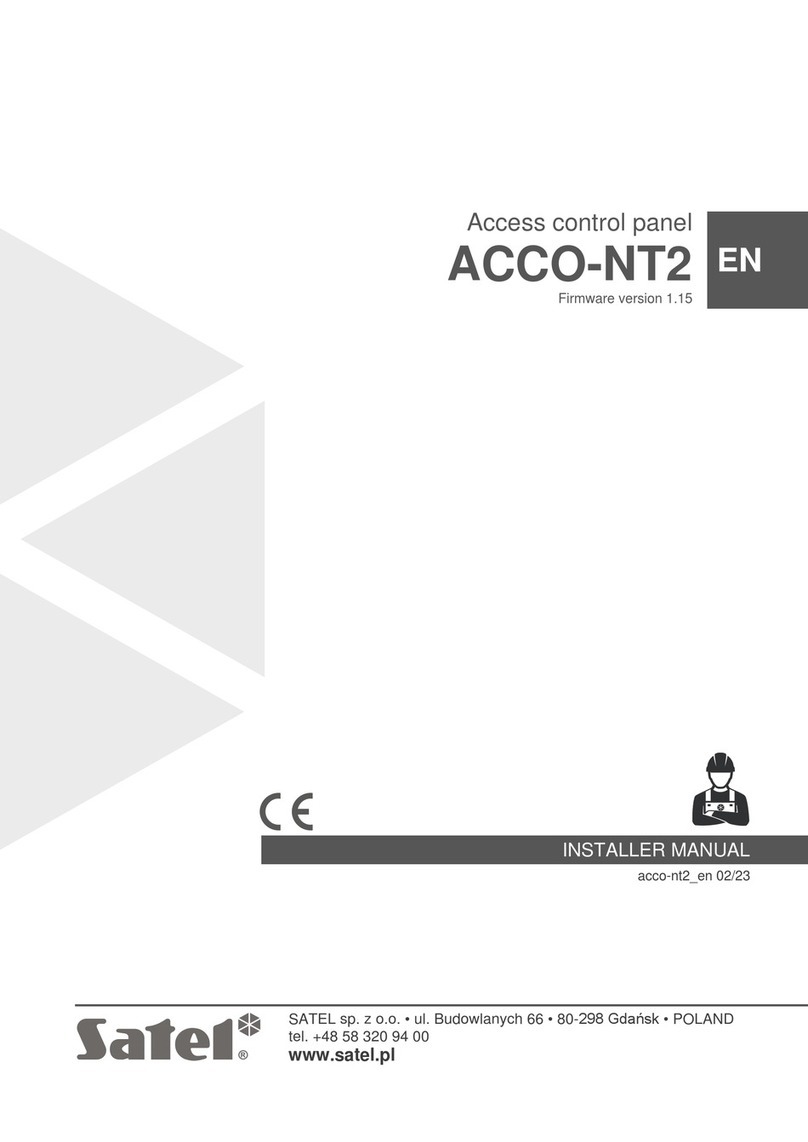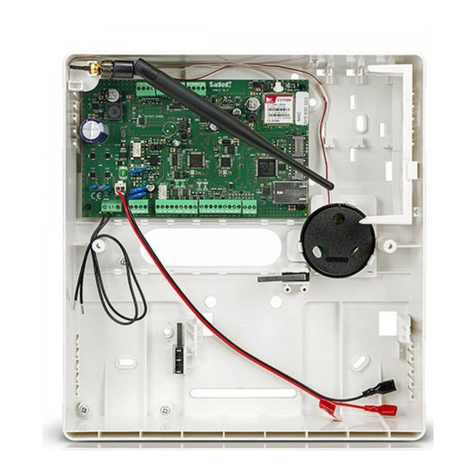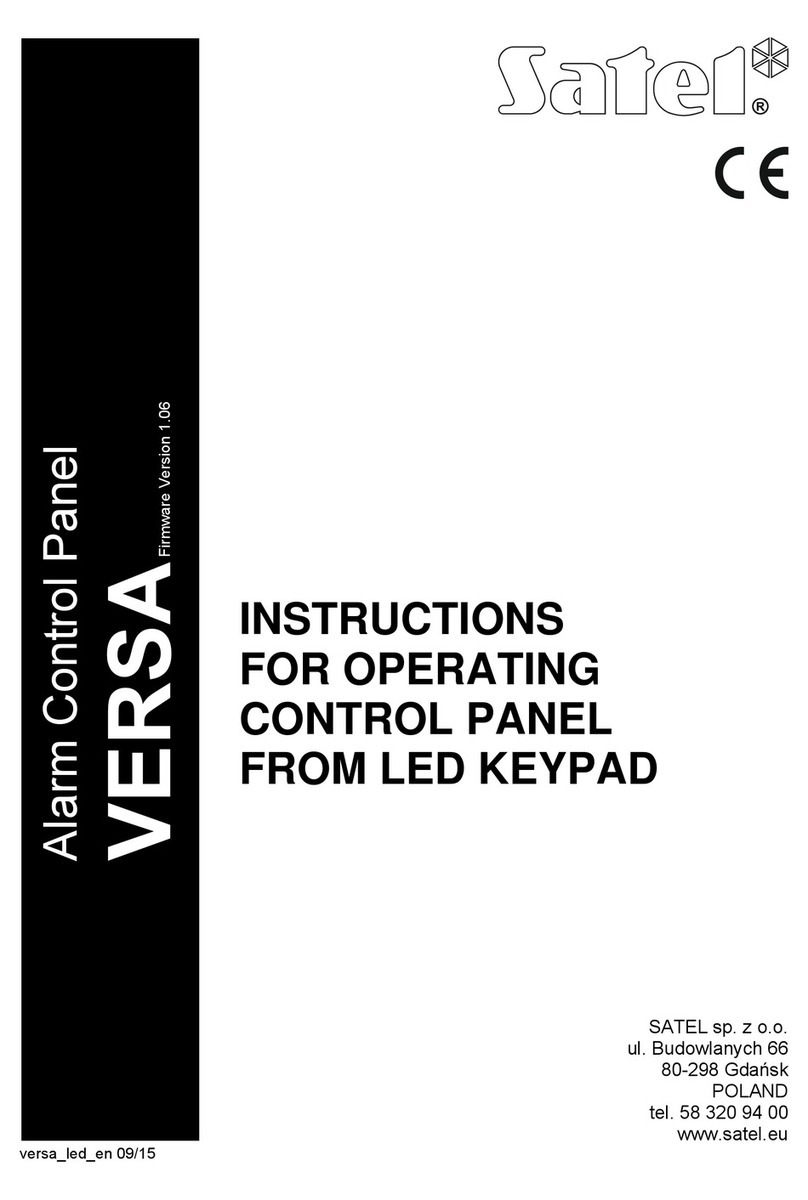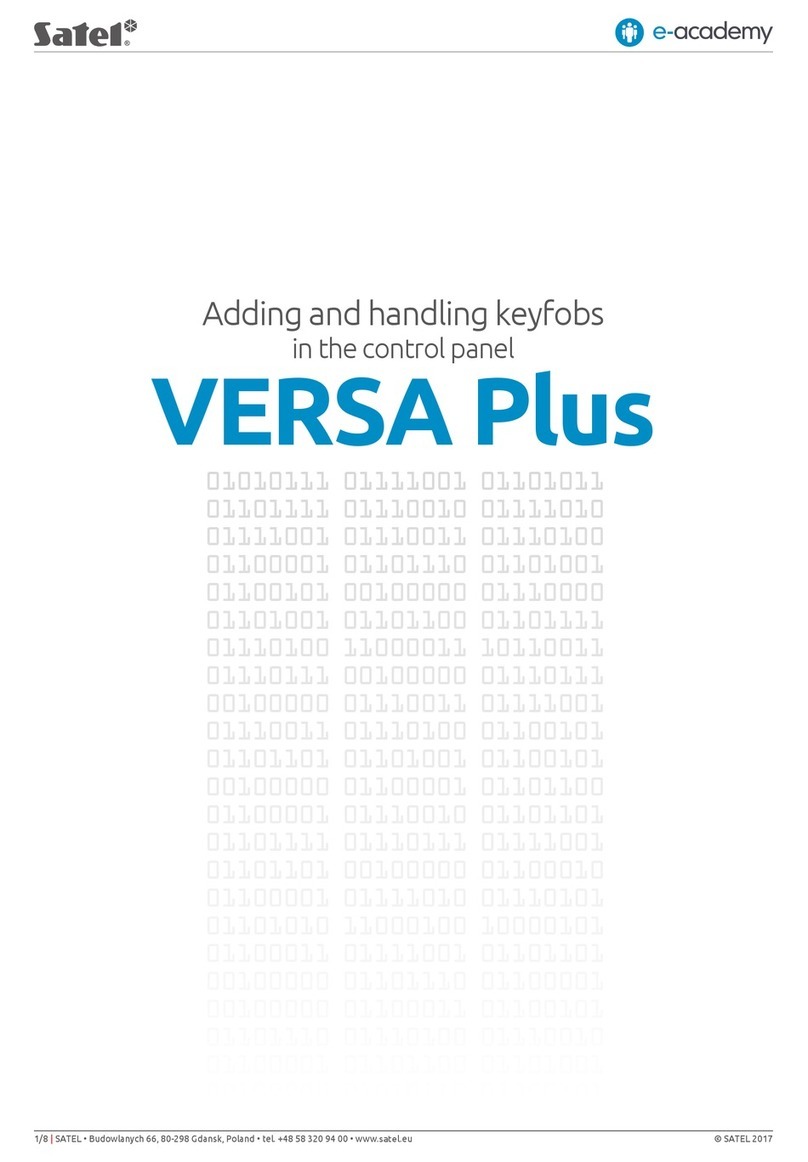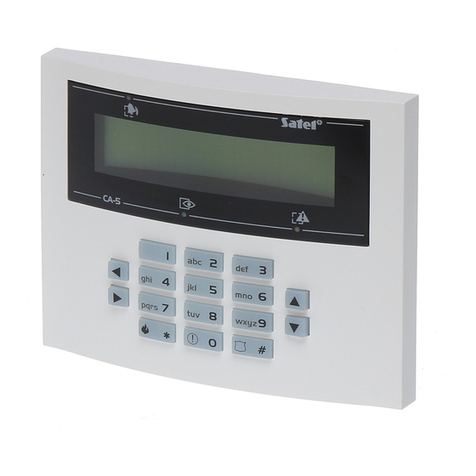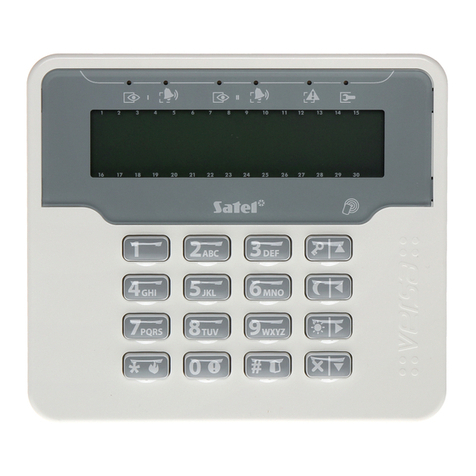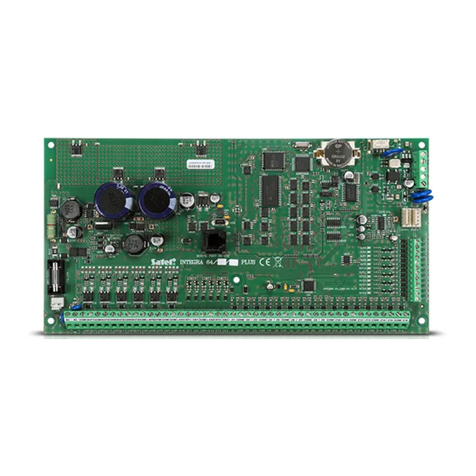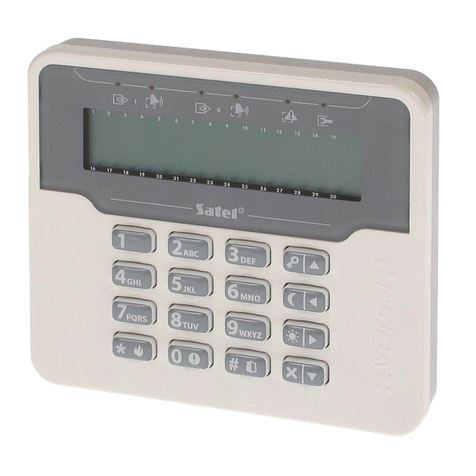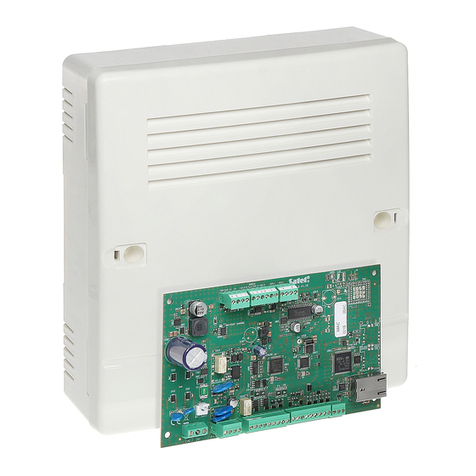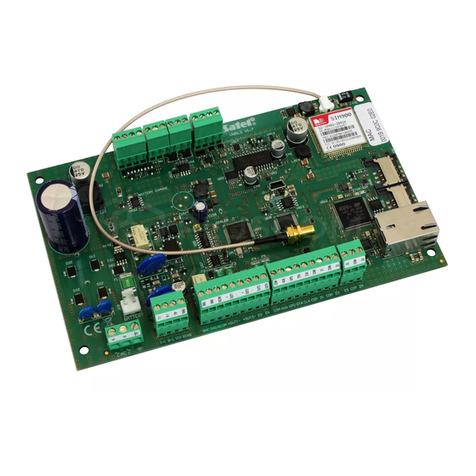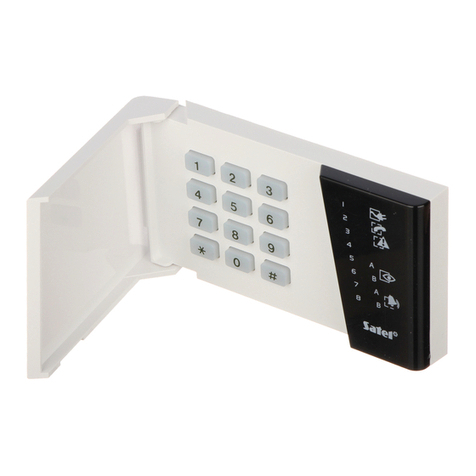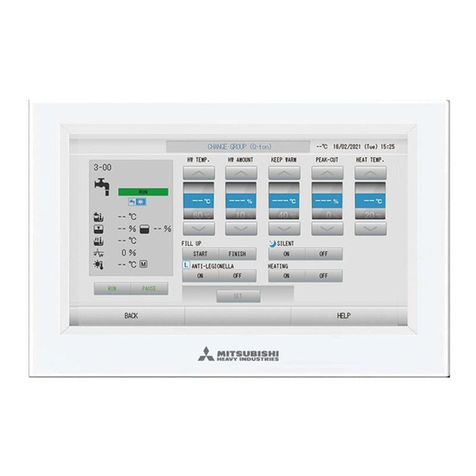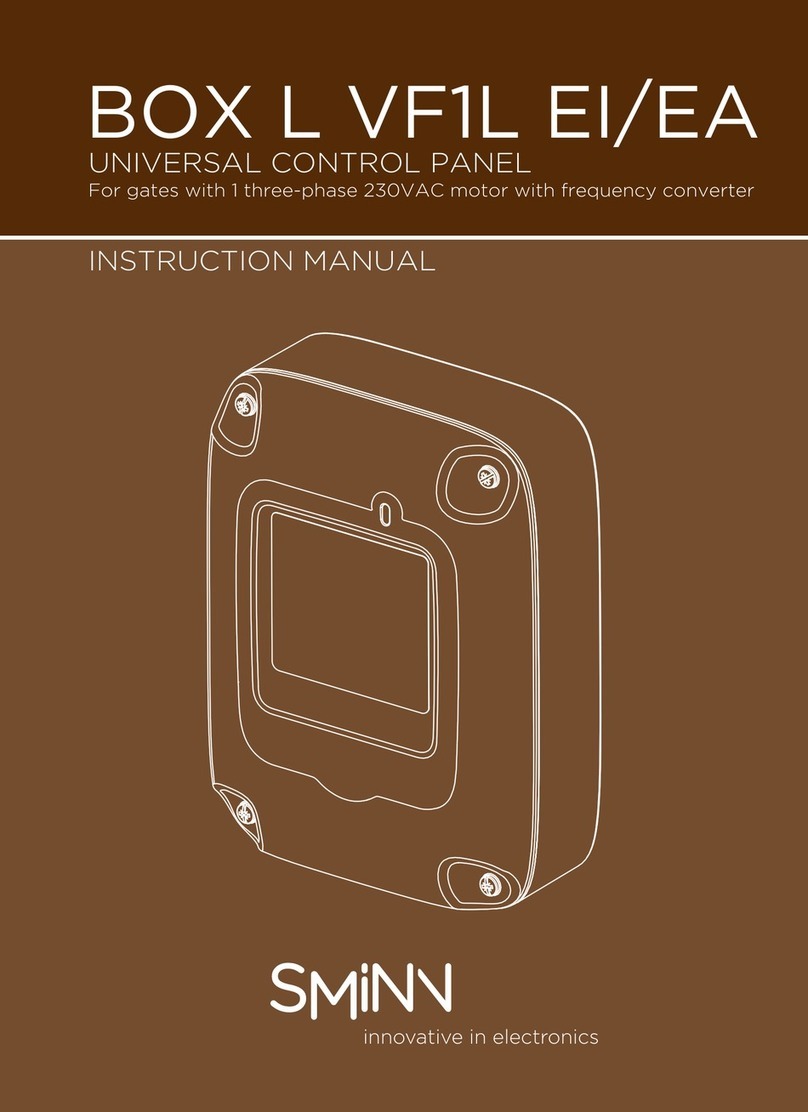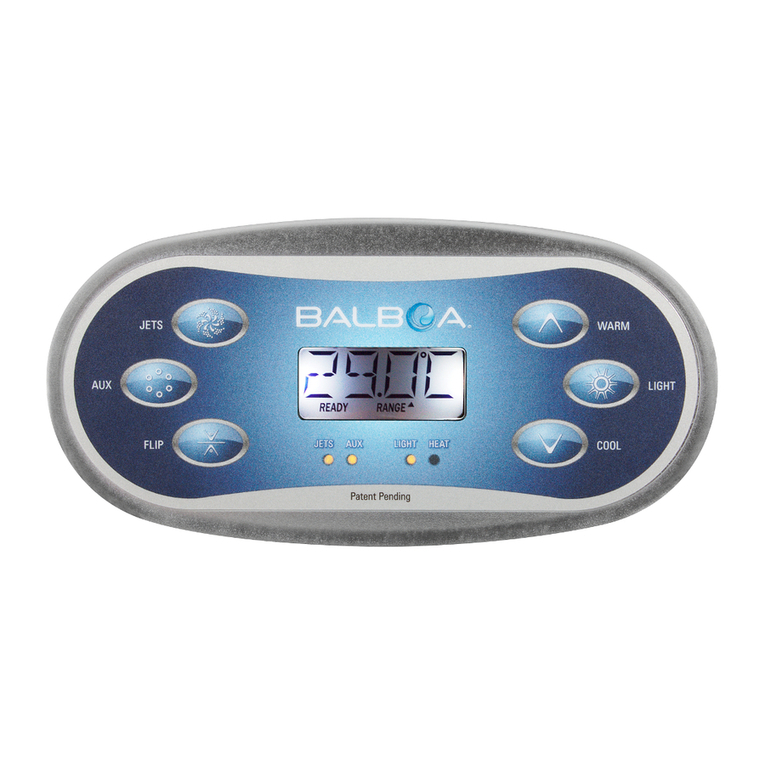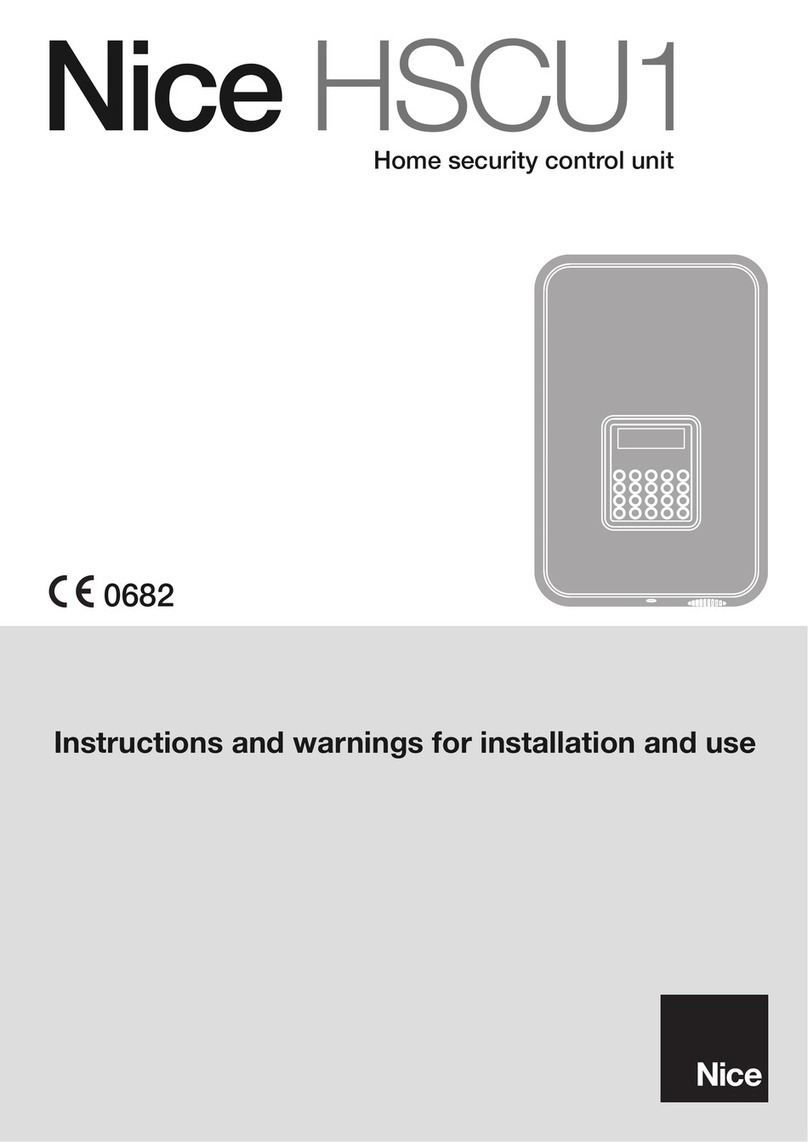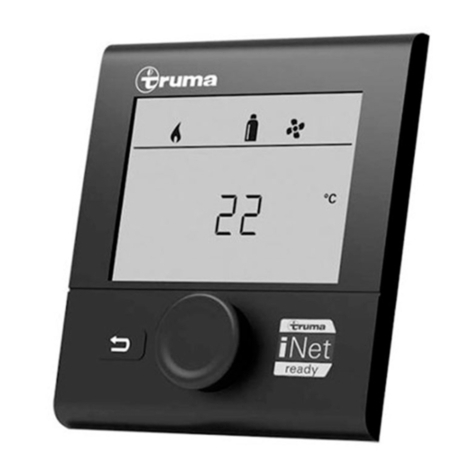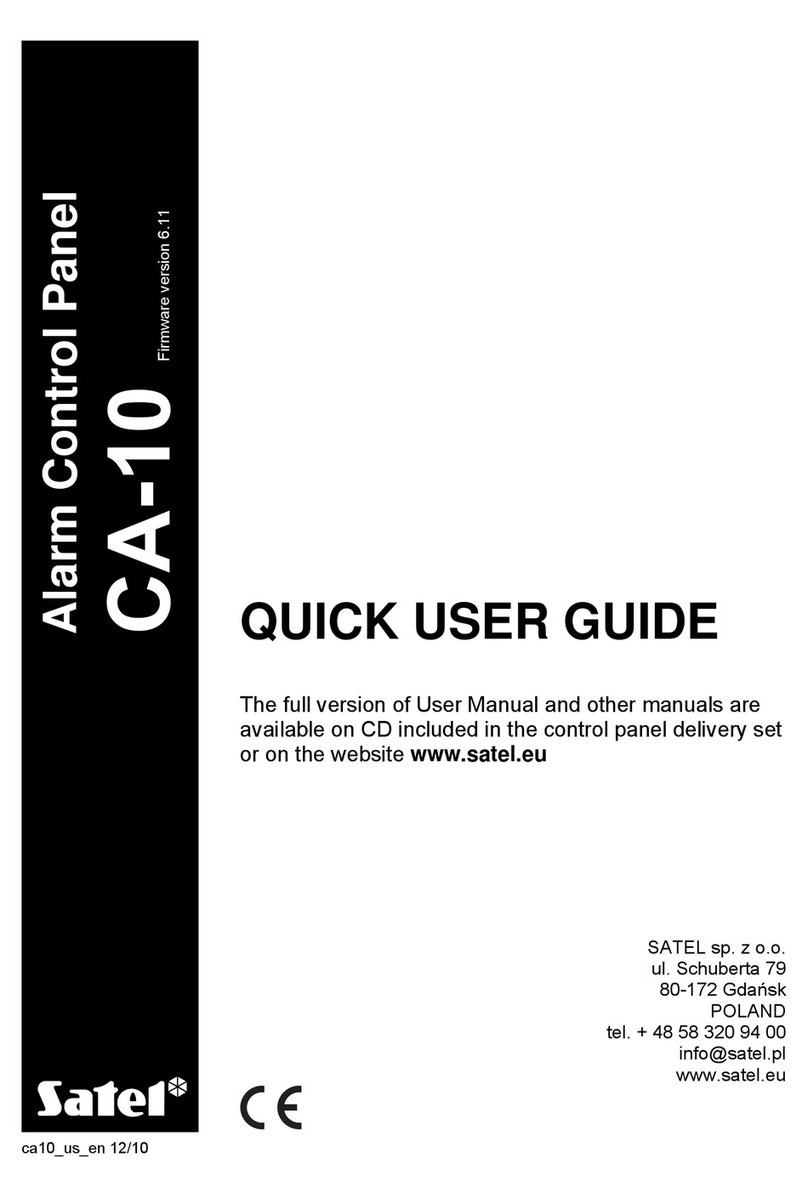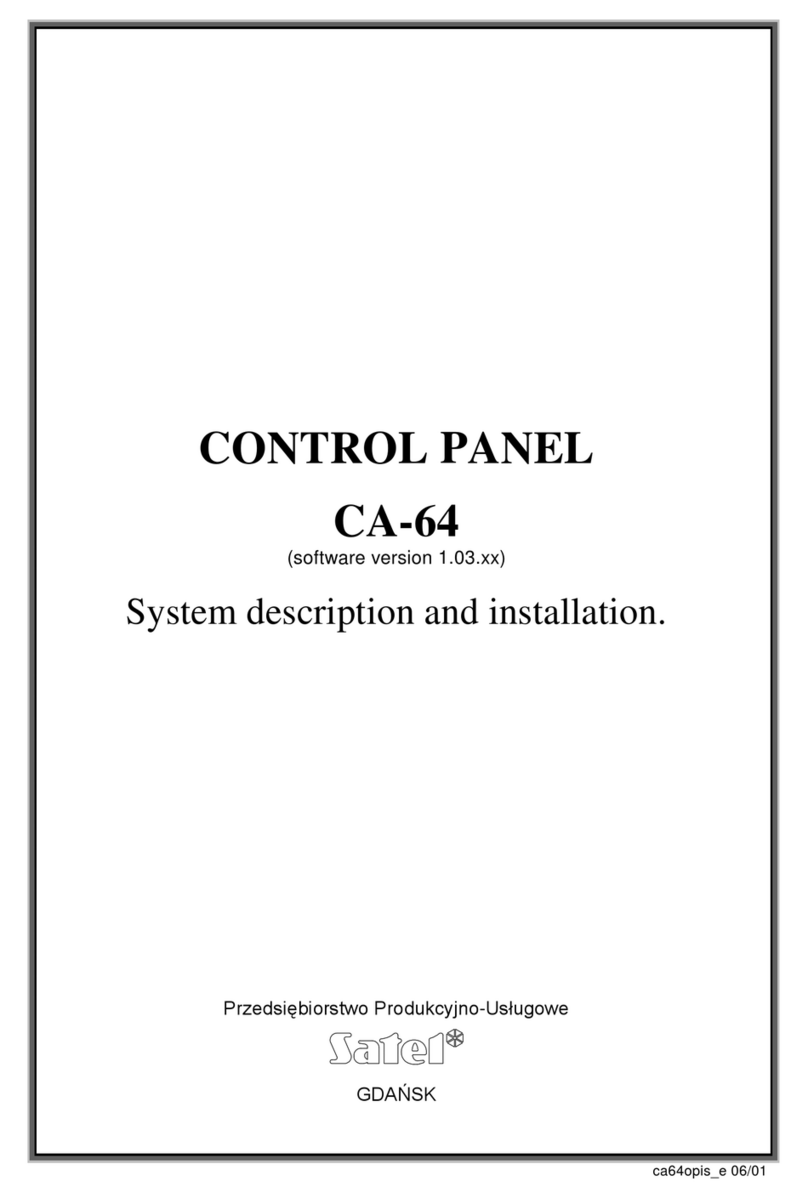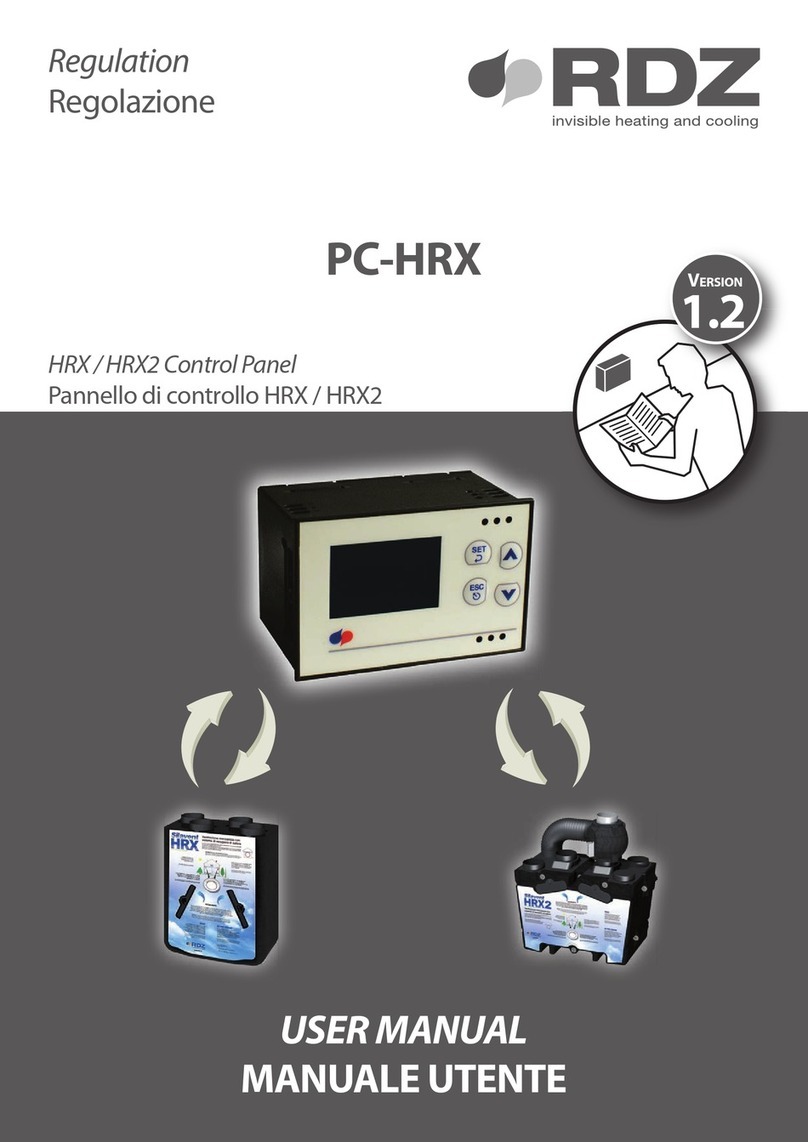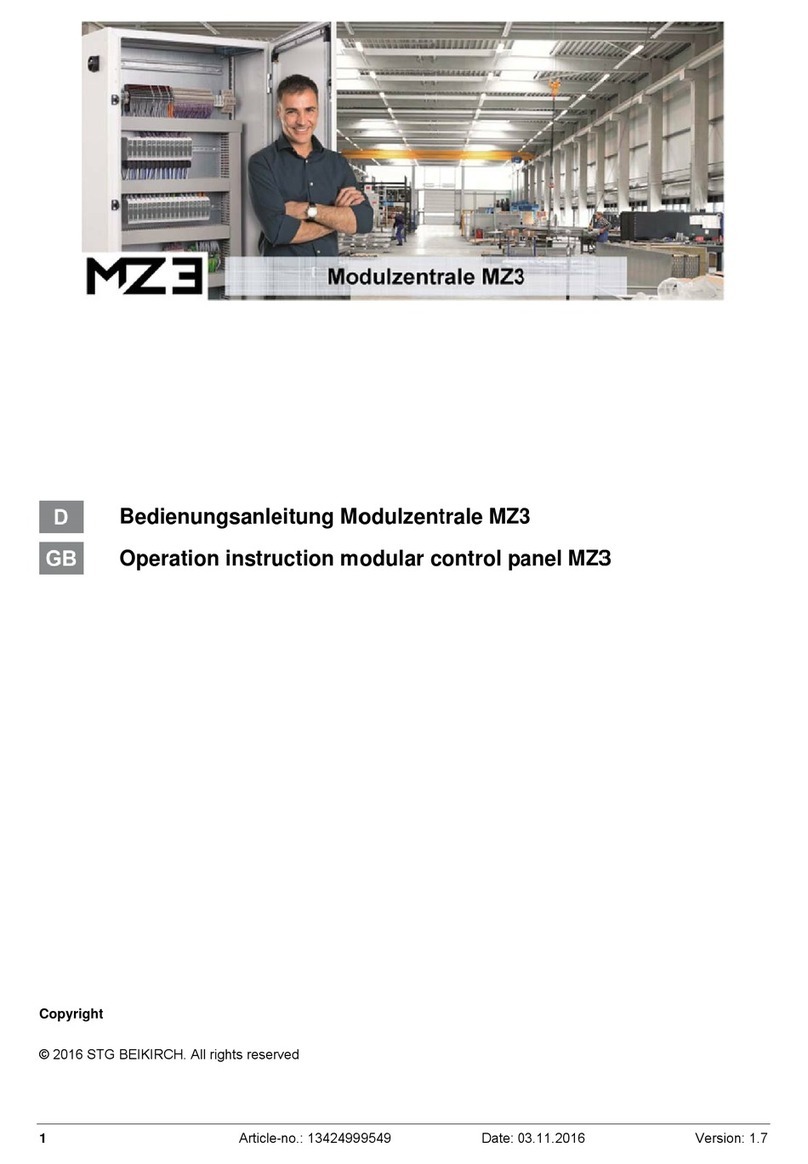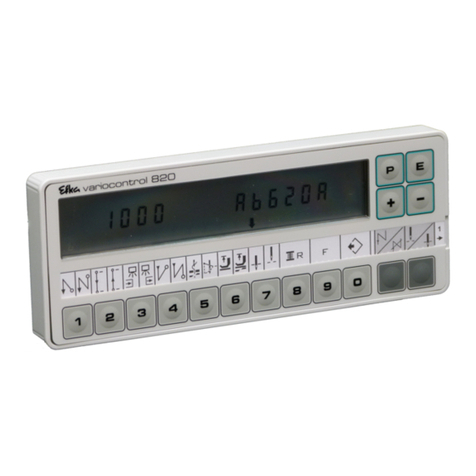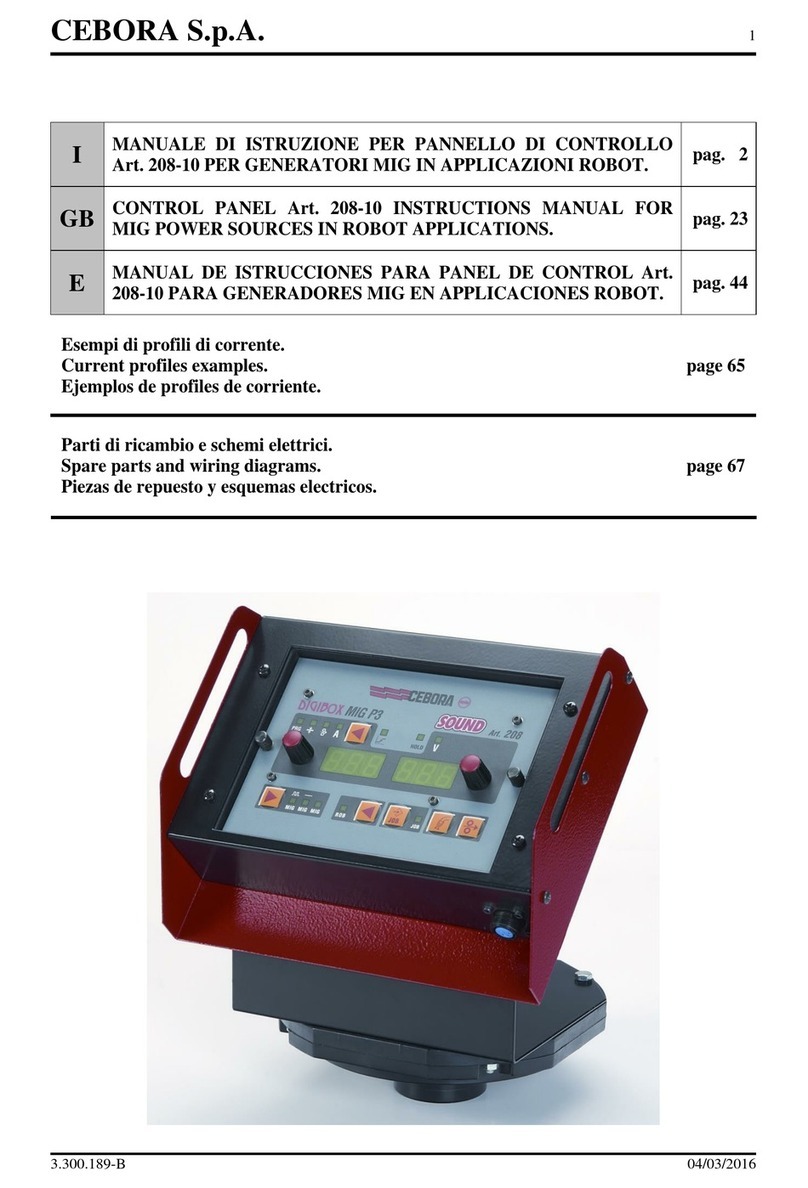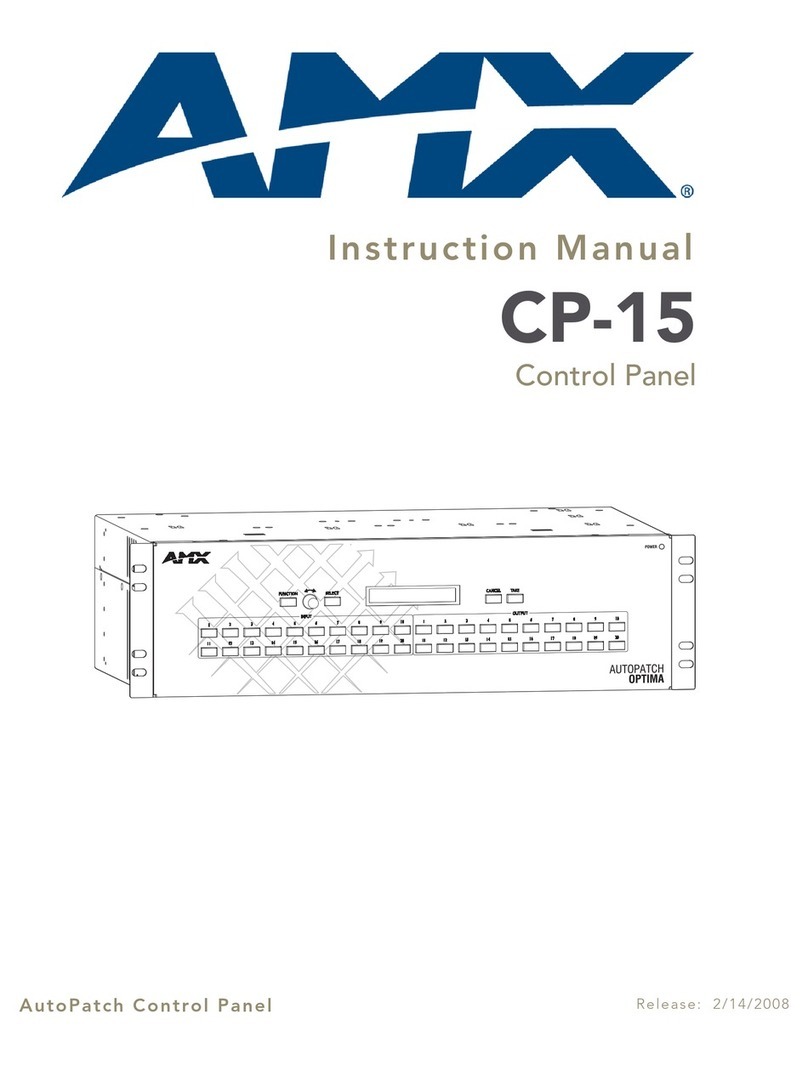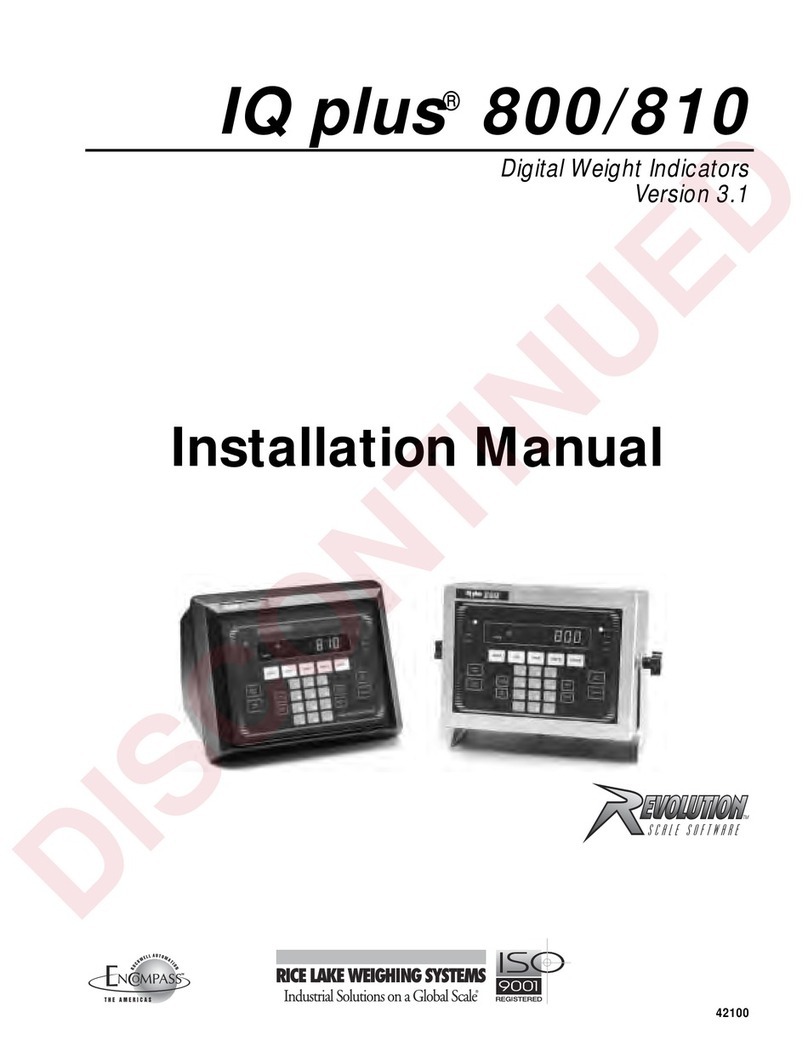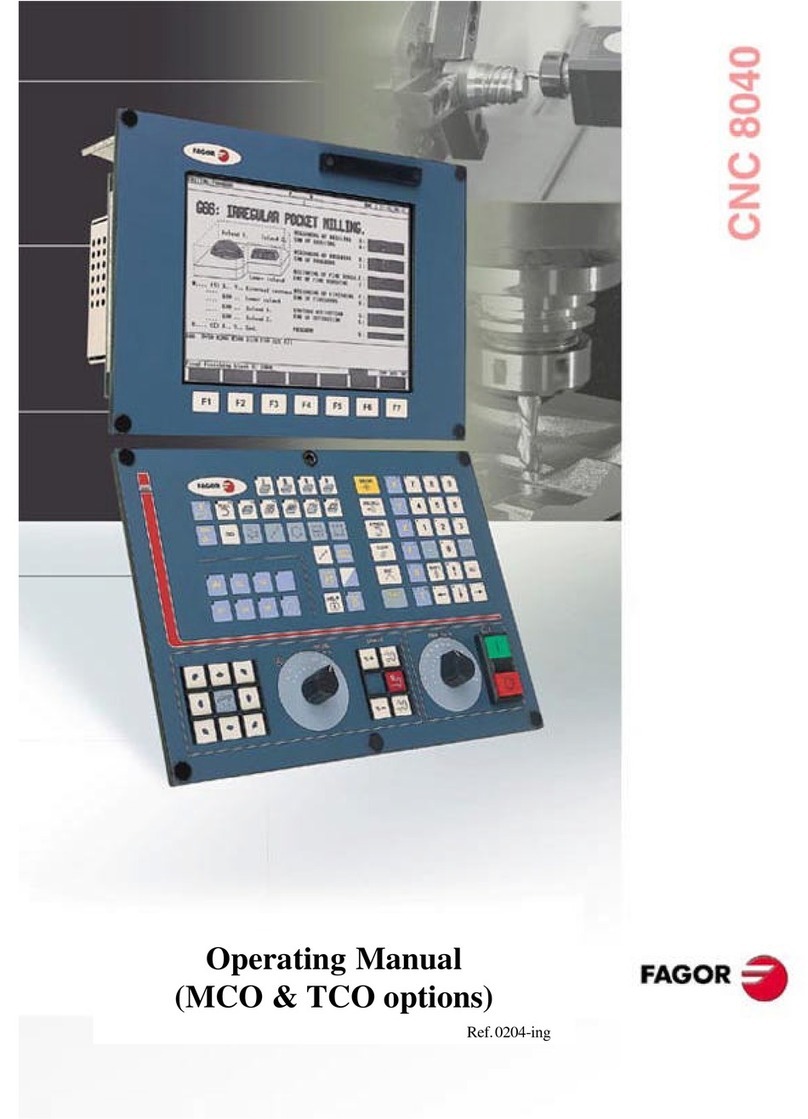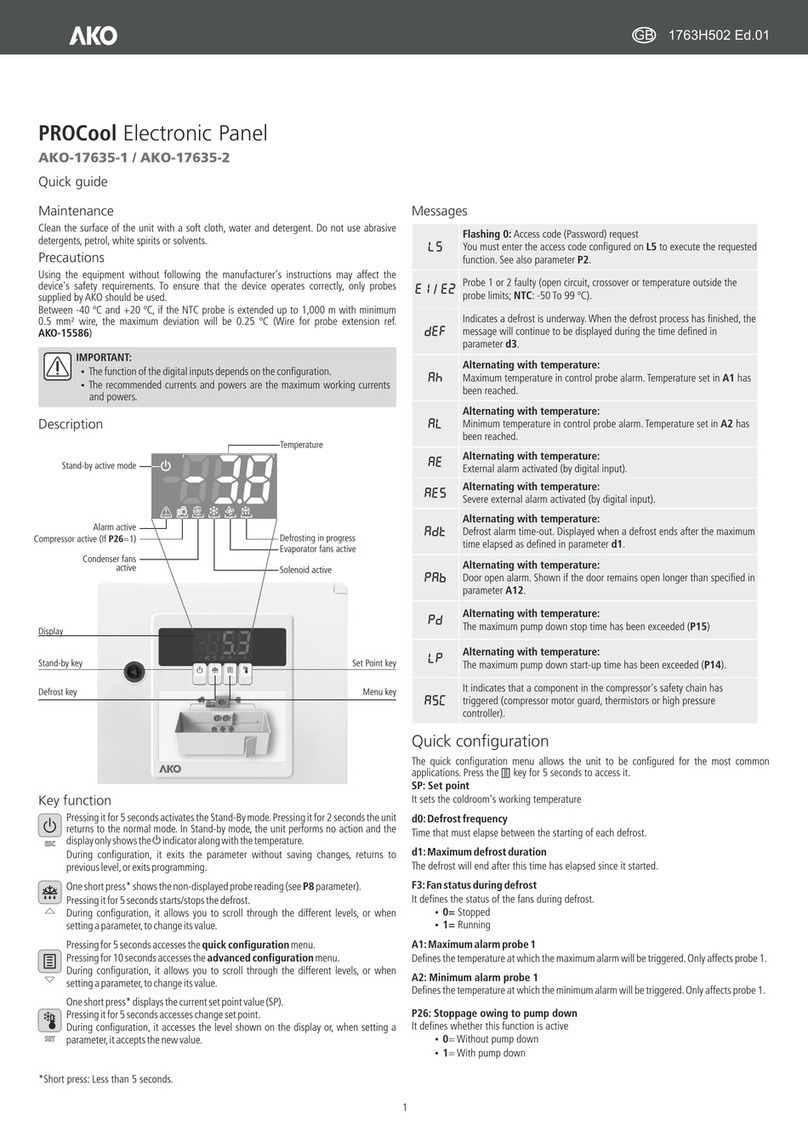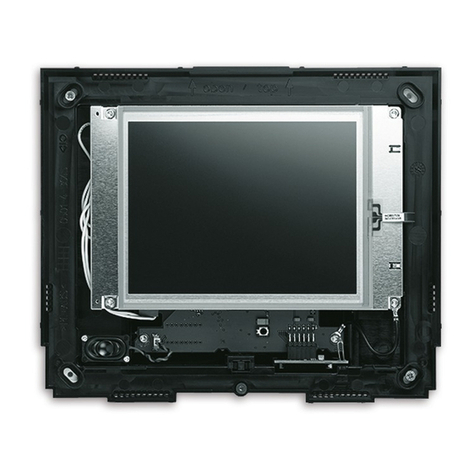TECHNICAL RELIABILITY OF THE SECURITY SYSTEM
The security system is built of technical devices, the reliability of which is vital for
effectiveness of the site protection. The security system elements are exposed to a variety
of outside factors, including the weather conditions (outside signaling devices), lightning
(overhead telephone lines, power lines, outside signaling devices), mechanical damage
(keypads, detectors. etc.). Maintaining a high level of the security system reliability is only
possible by current control of the functioning of particular devices.
The control panel is equipped with a number of safeguards and auto diagnostic functions
intended for testing the system reliability. The control panel signals trouble detection by
switching on the TROUBLE LED on the keypad. Such a situation requires an immediate
response and, if necessary, consultation with the installer.
It is necessary to periodically test the security system functioning. Make sure that the
control panel reacts to violation of individual detectors, that their field of vision is not
blocked, that there is a reaction to the opening of protected doors and windows, and that
the functioning of signaling devices and telephone monitoring is correct.
The installer gives specific instructions on how the system should be controlled. Periodic
commissioning of the installer's maintenance service is recommended.
The user, in his own interest, should predict unexpected alarm conditions and plan
adequate procedures. It is vital to be able to verify the alarm, to determine its source
based on the keypad information, and to take appropriate measures, e.g. organizing
evacuation.
ALARM SYSTEM OPERATING COSTS
The main task of the control panel is signaling and efficient reporting of alarm situations
and, in the case of the monitoring function, keeping the monitoring station informed about
the protected facility status. Performance of these functions is to a large extent based on
the use of a telephone line, which entails generating certain costs. Generally, the level of
costs incurred by the alarm system owner depends on the amount of information the
control panel has to transfer to the monitoring station. A failure of the telephone links, as
well as incorrect programming of the control panel, may to a large degree increase these
costs. Such a situation is usually related to an excessive number of connections made.
The installer can adjust functioning of the alarm system to the specific conditions and kind
of the protected site, however it is the user who should decide if his or her priority is
transferring information at any price, or, if some technical problems occur, the control
panel is allowed to skip some events, the reception of which has not been confirmed by
the monitoring station.
GENERAL FEATURES
The CA-5 alarm control panel is an advanced, microprocessor base device designed for
burglary and assault alarm systems. It is characterized by a simplicity of operation,
legibility of information for the user, and a high operational reliability. It has been fitted with
a telephone communicator (dialer) which enables the security system to operate together
with a monitoring station.
The control panel is intended for a variety of sites, including apartments, detached houses,
warehouses, stores, kiosks, etc.

